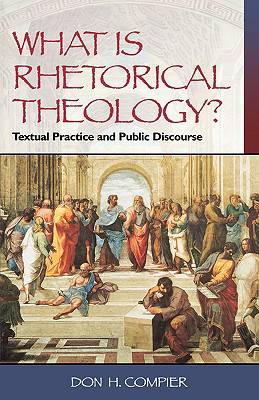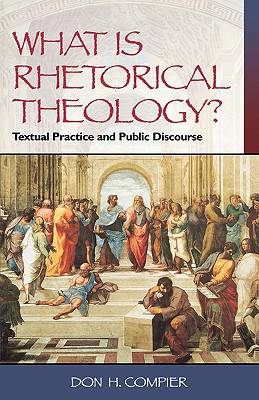
- Afhalen na 1 uur in een winkel met voorraad
- Gratis thuislevering in België vanaf € 30
- Ruim aanbod met 7 miljoen producten
- Afhalen na 1 uur in een winkel met voorraad
- Gratis thuislevering in België vanaf € 30
- Ruim aanbod met 7 miljoen producten
Zoeken
€ 62,95
+ 125 punten
Omschrijving
What Is Rhetorical Theology? covers the tradition of classical rhetoric, especially as practiced by the Roman orators. It considers the appropriation of this heritage in Augustine's On Christian Doctrine and the influence that important work had on Christian theology in the West. After describing how modern scholarship has tended to view rhetoric with deep suspicion, the book summarizes the retrieval of persuasive discourse in many academic disciplines and the influence of this movement on contemporary theologians such as David Tracy, David Cunningham, and Rebecca Chopp. In addition, What Is Rhetorical Theology? offers it own constructive proposal, that is, it argues that the theological task today may be described as rhetorical hermeneutics. With the help of literary critics such as Steven Mailloux and Jane Tompkins, the author develops a practical and "interested" approach to the interpretation of classical Christian texts, thereby allowing them to speak to our contemporary concerns. The book also presents an epistemological defense of the rhetorical approach to reading as a middle way between objectivism and relativism, a section that serves as a helpful introduction to current debates about postmodern thought. Finally, the book illustrates the rhetorical method by applying it to a doctrine of sin in the form of a constructive dialogue between critical theory and the Christian theological past. Don H. Compier is Associate Professor of Theology at the Church Divinity School of the Pacific and a member of the core doctoral faculty of the Graduate Theological Union.
Specificaties
Betrokkenen
- Auteur(s):
- Uitgeverij:
Inhoud
- Aantal bladzijden:
- 112
- Taal:
- Engels
Eigenschappen
- Productcode (EAN):
- 9781563382901
- Verschijningsdatum:
- 1/10/1999
- Uitvoering:
- Paperback
- Formaat:
- Trade paperback (VS)
- Afmetingen:
- 140 mm x 216 mm
- Gewicht:
- 163 g

Alleen bij Standaard Boekhandel
+ 125 punten op je klantenkaart van Standaard Boekhandel
Beoordelingen
We publiceren alleen reviews die voldoen aan de voorwaarden voor reviews. Bekijk onze voorwaarden voor reviews.











